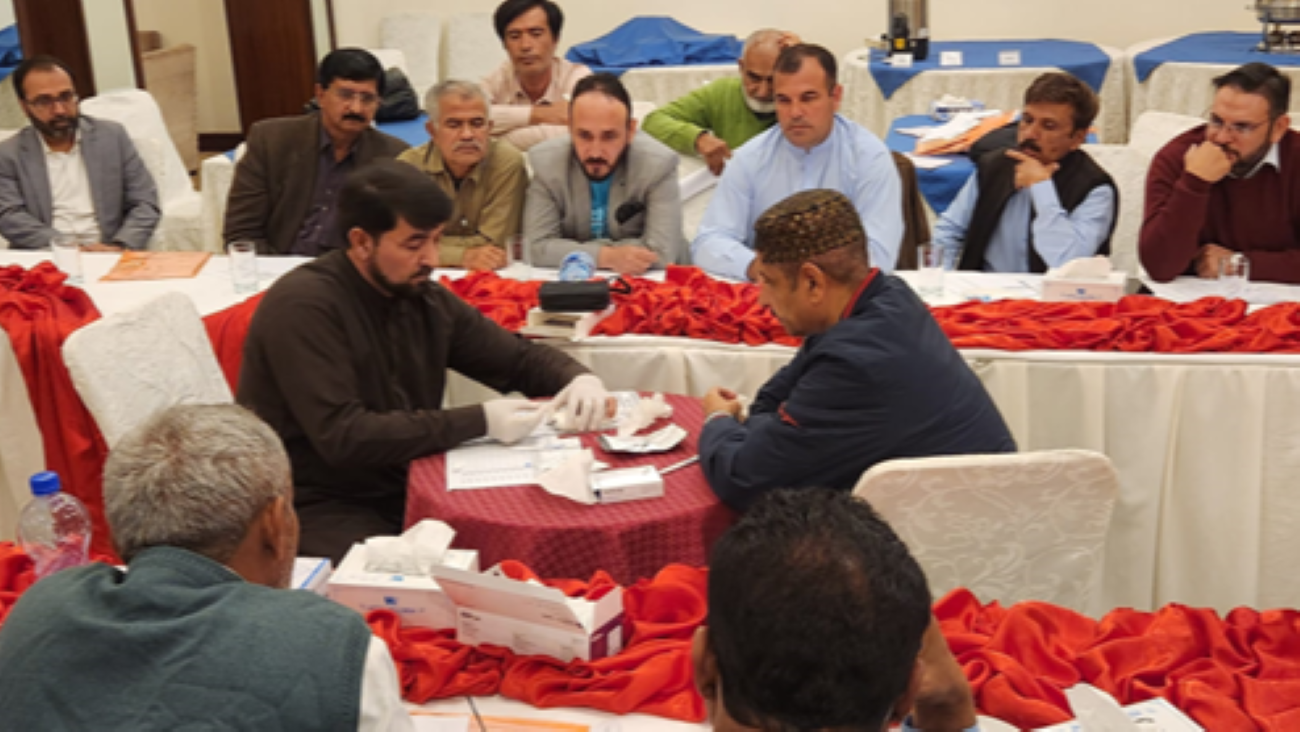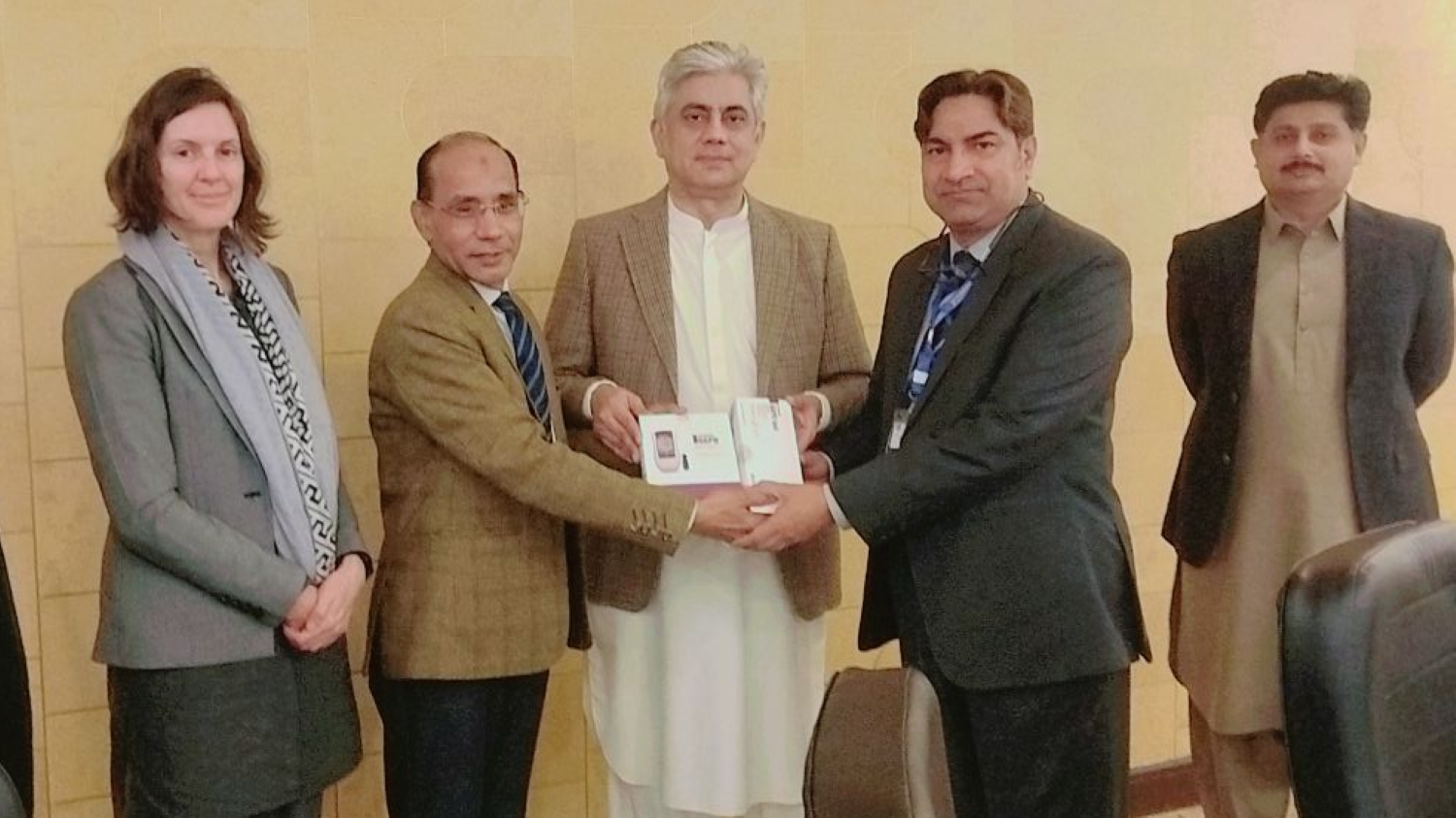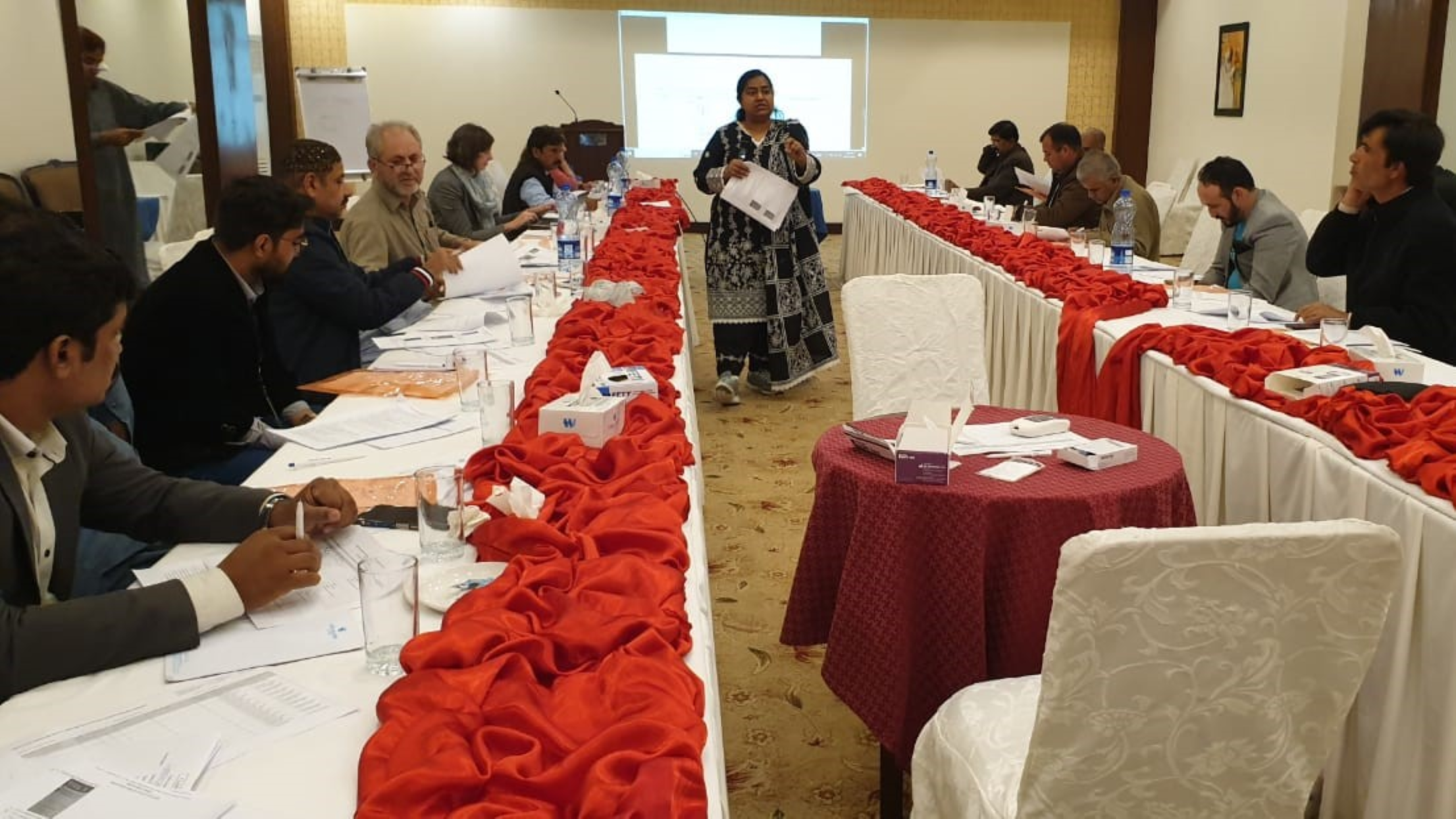
Pakistan has aligned itself with the WHO Global Technical Strategy, unveiling a comprehensive National and Provincial Malaria Elimination Strategic Plan with the ambitious goal of achieving a "Malaria-Free Pakistan by 2035." Spearheaded by the Directorate of Malaria Control (DoMC) and developed with input from provinces and stakeholders, this strategic initiative signals a new chapter in the fight against malaria.
Recent years have seen a concerted effort by leaders and stakeholders towards this initiative through projects including a programmatic review, a revised national malaria strategy, and the development of a vivax elimination roadmap through the technical assistance from APMEN Vivax Working Group.
Through a readiness planning workshop in 2021/ 2022, consensus emerged from all provinces to introduce tafenoquine, a single-dose radical cure, aligning with WHO recommendations for its use in vivax malaria. Irrespective of a change to tafenoquine, the DoMC wants to implement best practice to introduce G6PD testing to increase the confidence of health workers in administering vivax radical cure with the current treatment: primaquine 7-day standard dose. To facilitate this, the DoMC, in partnership with APMEN, is conducting a pivotal pilot project to prepare for a higher quality vivax radical cure roll-out by introducing G6PD testing. This initiative aims to test G6PD in nine high malaria burden districts, a crucial step towards realizing the vivax elimination roadmap.

The DoMC, in collaboration with APMEN, hosted the “Training of Healthcare Workers on Quantitative G6PD Testing” on 7-9 December 2023 in Islamabad. Agha Khan University in Pakistan, with prior experience in G6PD, played a facilitating role in this training program. The Provincial Master Manager, Provincial Program Manager, Lab Technician, and Pathologist/ Doctor from nine districts (Bolan, Noshki, Killa Saifullah, Shangla, Nowshera, Muzafargarah, Mitiari, Tando Allah Yar, and Tando Muhammad Khan) actively participated in the training.
This is my honour to have a very warm welcome to our partners, including APLMA, APMEN, and MMV who are making significant contributions to the Directorate of Malaria Control (DoMC) - Pakistan to achieve its goal of Malaria Elimination. The Ministry of National Health Services, Regulations, and Coordination (NHSRC), Government of Pakistan, along with its provincial counterparts, is firmly committed to provide its level best support, focussing the enhancement of domestic resources. - Dr. Muhammad Ahmed Qazi. Director General (Health), Ministry of NHSRC, Pakistan
The training included:
Theoretical knowledge on malaria epidemiology, biological processes of G6PD, and new tools to treat vivax malaria
Significance of G6PD testing in various medical conditions
Practical skills, demonstrations, a video and hands-on use of G6PD analysers
Maintenance and G6PD troubleshooting of common user errors
Training on teaching methods provided by master trainers
A noteworthy achievement is the successful conclusion of an intensive G6PD training of four master trainers and 18 personnel pathologists, physicians and medical laboratory teams from districts where G6PD testing will be introduced for the pilot study. Post-training theory testing showed that most participants understood the use of the G6PD analyser, the steps required to undertake the test, and how to interpret its results.
Table: Pre- and post- training theory results for all participants (n=22)
| Pre-training theory testing | Post-training theory testing | |
Participant average | 27.8 | 86.7 |
Participant median | 27.2 | 88.0 |
Participant min | 0.0 | 56.0 |
Participant max | 69.2 | 100.0 |
Table: Comparison of pre- and post-training indicators to estimate increase in knowledge through training
Post-training indicators | % increase |
Average increase post-training | +58.9 |
Median increase post-training | +60.8 |
Min increase post-training | +56.0 |
Max increase post-training | +30.8 |
The imminent distribution of cutting-edge G6PD testing devices marks an important step in the pilot project, propelling Pakistan closer to the ambitious goal of malaria elimination. Another significant milestone in this journey is the upcoming signing of a Memorandum of Understanding between the DoMC, the Drug Regulatory Authority of Pakistan, and US Pharmacopeia on Pharmacovigilance for Antimalarial Drugs. This step underscores the commitment to ensuring the safety and efficacy of malaria treatments.

“This is a first concrete step towards Malaria Elimination in Pakistan. The Directorate of Malaria Control of Pakistan is extremely thankful to partners like APLMA, APMEN and MMV for their outstanding support to achieve the goal of Malaria Elimination” – Dr Muhammad Mukhtar, Director of the DoMC, Ministry of NHSRC, Pakistan
This remarkable initiative paves the way for a brighter future, where Pakistan aspires to see a landscape free from the burden of malaria, aligning with the collective vision for a malaria-free Asia Pacific region.
